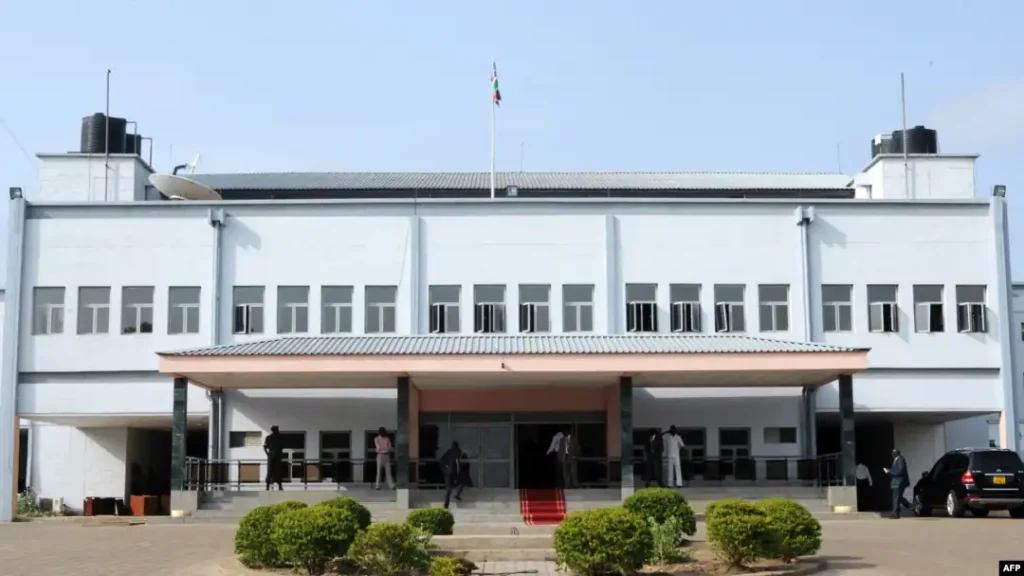The Transitional National Legislative Assembly (TNLA) Standing Specialized Committee of Finance and Planning on Friday conducted a public hearing on the Fiscal and Financial Allocation and Monitoring Commission Bill 2023.
The purpose of the Bill is to provide for the establishment of an independent commission to ensure transparency in the allocation of national funds to the states and the counties.
Speaking during the session, the Committee Chairperson, Changkuoth Bichiock Reth, said the Bill fulfils Article 4.11 of the 2018 Peace Agreement, on wealth sharing and revenue allocation.
Reth noted that the Bill is important because it can be used for the establishment of the independent commission.
“The Revitalized Agreement on Resolution of Conflict in South Sudan (R-ARCSS) stated that the revenue collected by the national government shall be allocated to the various levels and the transitional government shall review and reinvigorate the independent Fiscal and Financial Allocation Monitoring Commission (FFAMC),” he said.
“The Bill provides for the conformity of the fiscal and Financial Allocation Monitoring Commission Bill 2023, with the constitutional, legal and political guiding principles, objectives and ideals in the 2018 Peace Agreement and the transitional constitution.”
An MP representing Western Equatoria’s Ezo County Justin Joseph Marona, believes the Bill is important for the equitable distribution of resources.
“This Bill is important because equitable distribution of resources is one of the important elements of development and sustainable governance,” Marona said.
European countries such as Germany, Marona noted, used Fiscal and Financial Allocation and Monitoring Commission for the formulation of budget.
“In budget formulation, there’s supposed to be a formula that agreed with the allocation of resources. The Fiscal and Financial Allocation and Monitoring Commission is what agrees with resources allocation,” he explained.
However, the Executive Director of the Center for Peace and Advocacy, Ter Manyang, raised concern over the procedures of the appointment of the members of the Commission.
He said the Bill should look at the qualifications rather than their loyalty to the President.
“We say members should have at least a bachelor’s degree in economics, public finance, business administration, or any related field,” he said.
In addition, Manyang suggested that, there should be an independent body to monitor the use of the funds allocated.
“Can we establish an independent body to monitor the use of funds rather than leaving it to the Commission? In any organisations, there is a board of directors. So why do we leave it only to the Commission? What if they misuse the funds?” Manyang questioned.
The civil society representative also objected to the idea of the commission submitting quarterly reports to the President, requesting that the reports be submitted to parliament.
A World Bank employee, who only identified himself as Paul, said the only way to make the Commission strong is to be empowered to investigate and monitor the misallocation and misuse of funds.
“We need to explicitly include the aspect of monitoring the efficiency of funds allocation and utilization,” Paul stressed.
“Empower the Commission to conduct independent investigations into any misallocation or misuse of funds. That is how to strengthen the Commission,” he said.
Among other provisions, the Bill requires the government to allocate 15% of the revenue collected to the states and counties. However, this should be discussed by the parliament.
The Chairperson of the Finance Committee said all the views collected would be incorporated and tabled in the august House for discussion.




